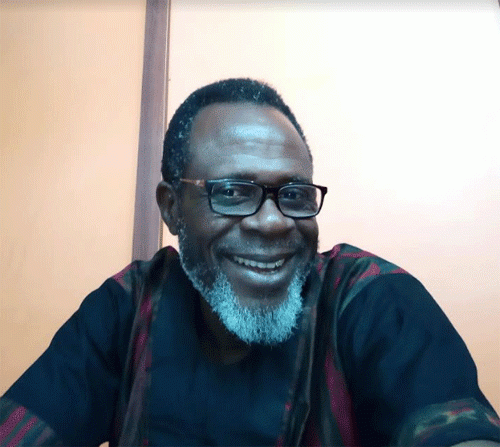There is a war song we sing in my warrior village, Umunakara Imerienwe in Ngor-Okpala, Imo State. The song is Anyi gwara onye shi anyi agaghi abia? (Whom did we tell that we won’t come?). Well, The Piano Teacher never told anybody he won’t be back.
Let me say I took a short break to rest, but through your phone calls and text messages, you stampeded me back to work by your inquiries and demand for the return of The Piano Teacher.
Only few days ago someone from Adamawa called me with an infectious excitement. He had just read the last episode of The Piano Teacher, “The beginning of dream of career at Nestle”, published May 19, 2019. He said he was holding the old copy of Sunday Vanguard right there with him. I was so busy with my endless workload but I exercised patience and actually enjoyed listening to him read over the phone some of the words I wrote in the story. He even read to me my name, OSA MBONU-AMADI, pronouncing it awkwardly, and my title, ARTS EDITOR. He mentioned his name and the name of his Local Government Area from where he was calling which I repeated several times trying to memorize but couldn’t. The love he exuded for The Piano Teacher made me promise him I will write another episode soon, and here I am, fulfilling that promise.
Maria from Warri also wrote to me on July 11 (9.23p.m.): “How are you my brother? I am sure I have not seen any article of yours for a very long time. I hope you are fine. Your regular fan, Maria from Warri.”
On the same July 11, another regular reader of The Piano Teacher, Charles Ugbaja also wrote in: “Greeting my brother…. Truly, I miss your column like many readers of your paper. Please make sure that column doesn’t die. If you can’t write now, kindly consider using good guest writers to feed (your other pages and create time) for yourself to write occasionally.”
There are many other such mails and voice calls too numerous to reproduce here. The summary of it is that the teeming readers of The Piano Teacher want the column back, and here, we have obliged them. Let me now pick up the thread of the story from where I had left it.
Before I received a formal invitation to attend an interview at Nestle Nigeria Plc for the post of Corporate Communication Officer, I was invited for an informal meeting with the head of Human Resources (HR). Somehow, I knew that music, which I studied in the university, was going to crop up in that meeting, or possibly be the subject, so I went to the meeting with some newspaper cutouts of the best articles I had written for newspapers.
I was right. The first question the head of HR asked me was: “But you studied music in the university. In which department do you think you can work here?”
Many people have the wrong notion that studying medicine, law, engineering accountancy or those other big-sounding courses are more tasking than studying music. But it’s not true, and I have explained that on this column before. Nothing could have stopped me from graduating with first class if I had studied law or a course in the social science.
“Yes sir,” I answered the HR Head, “I studied music. But I later studied journalism at NIJ. Besides studying journalism sir, I am a born writer.”
“What have you written?” he asked, repeating the same thread of questions the MD had asked me while I was teaching him the piano in his house.
I brought out the newspaper cutouts of what I had written, including a fine piece I wrote on cloning in Today’s News Today (TNT). The piece instantly arrested his attention and he began to read it. Then he gave it to his assistant to photocopy. For the next half an hour, we discussed the amazing biological science of cloning on which I had researched extensively and became a sort of expert.
I took him on the ABC of cloning, telling him that cloning someone is beyond producing an identical twin of that person, or the person’s copy or duplicate; it is a reproduction of that person. “Sir, if you are cloned, the resulting baby will be another you: a male with exactly the same strand of DNA, fingerprints, and all the biological details, so much that when the boy grows up to the same stature as you, your mother will never be able to recognize which one among the two of you she gave birth to.
“Sir, mind you, no two individuals, even if they are identical twins, have the same fingerprints. But your clone will have the same fingerprints as you.”
“You don’t say that!” he exclaimed.
“It’s true sir. And people have been cloned, even though it is illegal. You can read David M. Rorvik’s book, In His Image: The Cloning of a man. It’s the true story of a billionaire who secretly assembled scientists to clone him. To clone yourself sir, you will need a surrogate mother, a surgeon and a microbiologist.
“During ovulation period of the surrogate mother when the woman’s microscopic ripe eggs travel from the ovary through the fallopian tube, hoping to be fertilized by a male sperm cell during sexual intercourse, the surgeon makes just a tiny incision below the abdomen and harvests one of the woman’s ripe eggs and hands it over to the microbiologist.
“The work of the microbiologist is to destroy the nucleus of the egg (or what you call the egg yolk) which contains the woman’s biological identity, because you don’t want the woman’s identity to interfere or show up in the resulting baby…”
Please let’s continue this story next week, by God’s grace.







